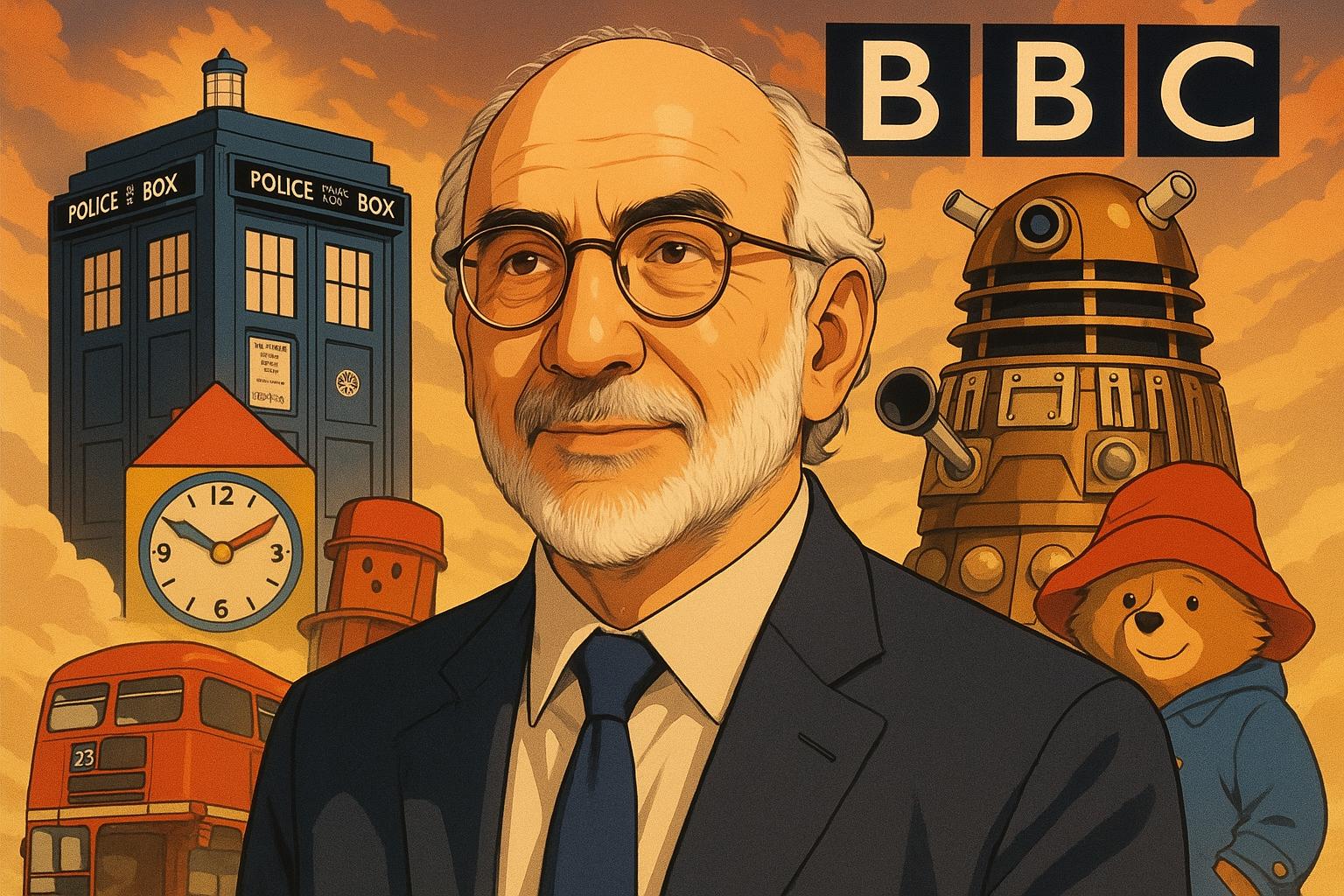Alan Yentob, a towering figure in British television, has left an indelible mark on the cultural landscape through his visionary leadership and compelling storytelling. Known primarily as the face of numerous acclaimed documentary series, including Imagine and Arena, Yentob's influence extends far beyond his on-screen presence. Over a career that began in 1968 with the BBC and spanned nearly five decades, he held nearly every pivotal position within the corporation, shaping the channels and programmes that have become staples of British culture.
Born in 1947 to Iraqi-Jewish immigrants in Stepney, East London, Yentob's upbringing was marked by both privilege and challenge. His family’s journey took them from London to Manchester and back, where the din of traffic on Park Lane would often disrupt his studies. His academic path was not without hurdles; falling short of the grades required for Oxford, he turned to the Sorbonne in Paris and eventually studied law in Leeds. However, it was there that he discovered his true passion for drama, setting him on a trajectory that would lead him into the heart of broadcasting.
Alan Yentob began his BBC career after a notably audacious application for a traineeship, which included a tongue-in-cheek reflection on his childhood stage debut. This boldness paid off, as he became the only non-Oxbridge candidate accepted that year. Following his initial work directing short films, he shot to prominence with Cracked Actor, a fly-on-the-wall documentary featuring David Bowie during a turbulent period in the artist's life. The documentary was lauded as perhaps the "greatest rockumentary ever" by Rolling Stone, signaling the beginning of Yentob’s influential journey.
He rapidly ascended the ranks within the BBC, taking the reins of Arena, where he revolutionised the format from a magazine-style show to in-depth documentaries focused on cultural icons such as Mel Brooks and Orson Welles. This shift was indicative of Yentob’s innovative spirit, which continued to flourish during his tenure as controller of BBC Two. Here, he championed groundbreaking programmes such as Absolutely Fabulous and Have I Got News For You, demonstrating a keen understanding of audience desires at a time when competition from Channel 4 was burgeoning.
In 1993, Yentob became the controller of BBC One, where he faced immediate challenges, not least of which was the controversial decision to cancel Eldorado, a soap opera that had generated substantial financial investments but had failed to capture audiences. Critics argue that this was a pivotal moment in demonstrating his commitment to quality over quantity, a philosophy that shaped his leadership style throughout his career.
Yentob’s foray into children's television was marked by the successful establishment of CBBC and CBeebies, fundamentally changing how children engaged with television. His commissioning of innovative shows such as The Office and Life on Mars underlined his ability to adapt to the evolving tastes of viewers. Industry peers, like Wayne Garvie, noted that Yentob was a driving force behind many of the BBC's most successful modern programmes, emphasising his role during transformative years for the network.
In 2004, appointed the corporation's creative director, Yentob enjoyed an expansive role that allowed him to return to presenting with Imagine, a series that delved into the arts and featured a range of prominent figures from various domains. Despite controversies, such as scrutiny over his expenses and the management of the charity Kids Company, his creative vision remained influential. In 2015, however, he resigned following the charity’s collapse, which raised significant questions about his oversight during a critical period. This incident has somewhat overshadowed his achievements but does not define his extensive legacy.
Yentob’s career is a testament to the symbiotic relationship between television and culture in the UK. As he navigated the complexities of broadcasting, he championed both established and emerging talent, facilitated innovative programming, and ultimately became a cultural figure in his own right. His story encapsulates the evolution of British television, reflecting both its triumphs and its challenges, ensuring that his legacy remains a fundamental chapter in the history of the medium.
Reference Map:
- Paragraph 1 – [1], [2]
- Paragraph 2 – [1], [3]
- Paragraph 3 – [1], [4]
- Paragraph 4 – [1], [5]
- Paragraph 5 – [1], [6]
- Paragraph 6 – [1], [4]
- Paragraph 7 – [1], [2]
Source: Noah Wire Services
